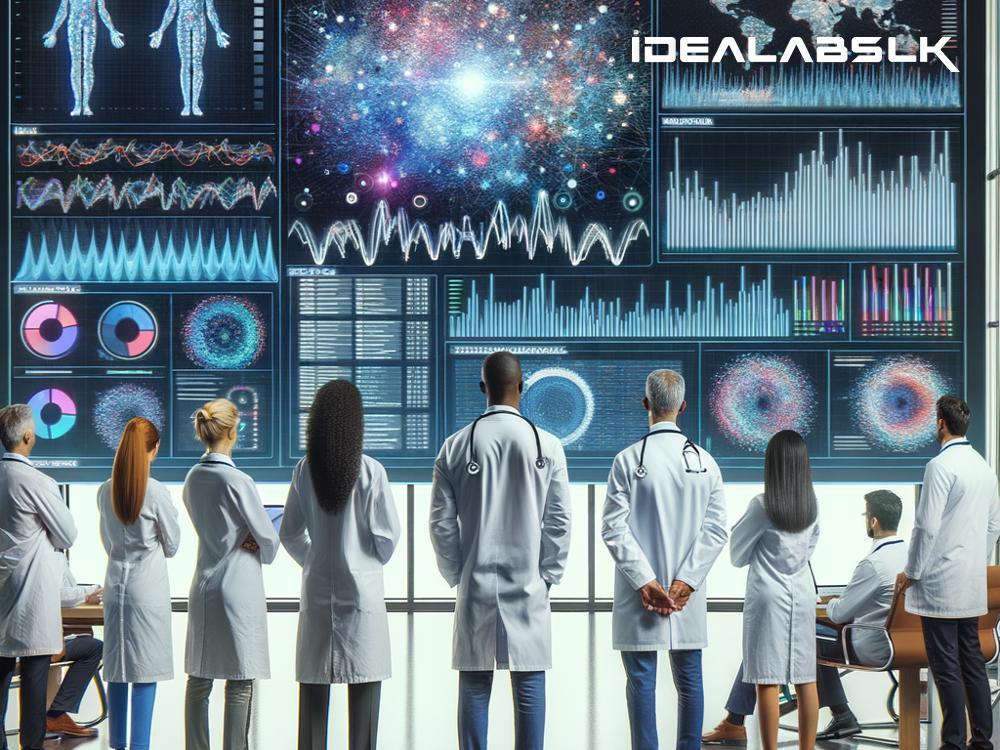Unlocking Mysteries: How Artificial Intelligence is Becoming a Game-Changer in Detecting Rare Diseases Early
Imagine living in a world where mysterious and rare diseases could be spotted and diagnosed well before they cause serious problems, bringing hope and potentially life-changing treatments to patients faster than ever. This isn't a snippet from a science fiction novel. Welcome to the present reality, where artificial intelligence (AI) is revolutionizing the early detection of rare diseases.
Rare diseases, while individually uncommon, collectively affect millions of people worldwide. Traditionally, diagnosing these conditions has been like trying to find a needle in a haystack. It can take years of costly tests, visits to various specialists, and significant emotional strain for a diagnosis to be made, if at all. But here's where AI steps in, like a detective with a magnifying glass, capable of spotting clues that even the most experienced doctors might miss.
Understanding the AI Detective
Artificial Intelligence, in simple terms, is a branch of computer science that enables machines to mimic human intelligence. It can analyze heaps of data quickly, recognize patterns, and make predictions or decisions based on the data it has processed. When applied to the medical field, AI becomes a powerful tool for diagnosing diseases, especially the rare kinds that are often overlooked until they've progressed.
How AI Makes a Difference in Early Detection
-
Data Crunching Superpower: One of the main ways AI shines is in its ability to sift through vast amounts of medical data in a blink. Medical records, genetic information, and research papers that would take humans years to analyze can be processed by AI in a matter of days or even hours. This means AI can identify potential rare disease cases much faster than traditional methods.
-
Pattern Recognition: Rare diseases often present patterns that are subtle and complicated. AI systems, trained on large datasets of patient information, can detect these patterns, sometimes even before clear symptoms appear. This is akin to understanding the language of rare diseases and anticipating their presence early on.
-
Customized Diagnostics: AI doesn't just spot diseases; it personalizes its detective work. By analyzing a patient's genetic information, AI can predict the risk of developing certain rare diseases. This personalized approach can lead to earlier, targeted interventions, making a huge difference in treatment outcomes.
-
Global Reach, Unbiased Insight: AI can work anywhere there's data, breaking down geographic barriers and providing its detective services worldwide. Moreover, because it learns from vast global data, it can offer unbiased insights, unswayed by local medical practices or the limited experience healthcare providers might have with rare diseases.
Real-World Heroes: AI in Action
Around the globe, numerous AI initiatives are making headlines for their role in battling rare diseases. For instance, programs that analyze retinal images to detect early signs of diabetic retinopathy or algorithms predicting genetic disorders from DNA sequences are already being tested. These aren't just hopeful projects; they are real applications of AI making tangible differences in patients' lives.
Facing the Challenges
Despite its potential, implementing AI in disease diagnosis isn't without hurdles. Questions about privacy, data security, and the ethical use of AI are at the forefront of ongoing debates. Moreover, AI systems are only as good as the data they're trained on, highlighting the need for diverse, high-quality datasets.
The Path Forward
The journey of integrating AI into healthcare, particularly for the early detection of rare diseases, is an evolving one. Continuous research, collaboration among tech and medical professionals, and regulatory frameworks that ensure safe and ethical AI use are essential steps in maximizing its benefits.
A New Era of Hope
Imagine a future where no disease is too rare to be detected early. This is the potential world AI is helping us to build. By harnessing the power of artificial intelligence, we're on the cusp of transforming the lives of those afflicted by rare diseases, offering them hope, faster interventions, and the chance for better outcomes. In the realm of healthcare, AI isn't just an innovation; it's a beacon of hope for millions. The detective work of AI in diagnosing rare diseases early is not just impressive; it's a testament to how technology is profoundly humanizing healthcare, one rare diagnosis at a time.

